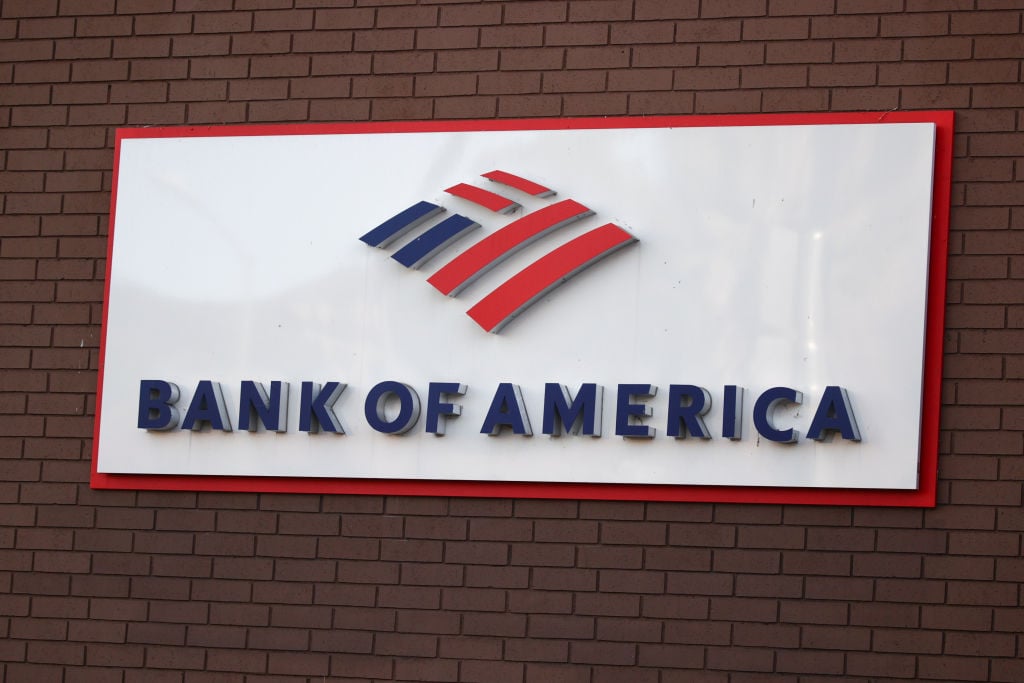With earnings per share clocking in at a cool $0.00, it's hard to say that Bank of America's (BAC 0.06%) third-quarter earnings were a fist-pumping success. However, with analysts expecting that the banking giant was going to notch a loss for the quarter, it could certainly be viewed as a win for B of A.
Of course, the EPS numbers rarely tell the whole story, and that's certainly true with B of A's quarterly report. Many factors affecting its core banking business appear to be moving in the right direction, and with the economy inching its way to better health, it's not crazy to think that might continue.
So is Bank of America's stock a buy? To find out, I tapped the banking team here at The Motley Fool.
I have been an owner of Bank of America in the past, but it was in my younger investing days, and I was scared off by its daily volatility. Now that I have a bit more experience when it comes to investigating companies, I am always on the lookout for companies that would help boost the returns in my portfolio and am better prepared to stomach day-to-day volatility. But does Bank of America fit the bill right now?
A handy rule of thumb for bank stocks is "buy at half, sell at two," which refers to buying when a bank stock trades at book value or less and selling when it's valued at twice or more its book value. With Bank of America currently trading at a 53% discount to book value -- and a 30% discount to tangible book value -- I see it as a very attractive option and am seriously thinking about adding it to my portfolio at its current price levels.
In making the case that B of A is a buy, many people, myself included, point to the fact that its stock is trading for massive discounts to both book and tangible book value -- the two primary valuation metrics for financial companies.
Needless to say, there's a reason for this. Namely, B of A faces billions of dollars in liability related to its 2008 purchase of Countrywide Financial, the nation's largest mortgage originator at the time. To give you merely one hard number for this, former purchasers of Countrywide's mortgages are currently trying to force B of A to repurchase a massive $25 billion in toxic loans dating to before the financial crisis.
Any question about the suitability of B of A as an investment accordingly reduces to whether you believe it can dig its way out of this hole. I believe it can, for two reasons. First, it's the nation's largest deposit holder, a fact it leverages to earn roughly $10 billion a quarter in net interest income alone. And second, for better or for worse, it's now harnessed to Merrill Lynch's famous "thundering herd," giving it enormous opportunities to cross-sell and grow organically.
That being said, B of A is a long-term hold, as it will take years for the bank to fully atone for its past misdeeds.
In my view, B of A is moving in the right direction. Merrill Lynch seems to be humming happily along, loan quality is improving, Tier 1 capital is up, and the cost-cutting project is making progress.
But doing better doesn't necessarily mean "buy," particularly given that several other bank majors -- notably JPMorgan Chase (JPM 0.26%) and Wells Fargo (WFC 0.62%) -- posted more impressive numbers and are showing greater potential. JPMorgan is quickly getting past that derivatives mess it made a few months ago, and its core investment bank operations look sound. And Wells Fargo is really cranking on the mortgage side (thanks in no small part to refinancing activities). Meanwhile, unlike B of A, neither has a potential multibillion-dollar mortgage-bond lawsuit hanging right over its head and threatening to sap its bottom line completely. So no, I wouldn't be a buyer of B of A's stock; there are better plays in the sector right now.
I've been a "man, it's ugly, but man, it's cheap" bull on Bank of America for a few years now. This quarter's earnings doesn't shift that viewpoint much. There were some good signs, including its estimated Basel III regulatory capital rising to just under 9%, some deposit growth, and some solid performance from its investment bankers.
On the bad side, although Bank of America brags about an 18% increase in its mortgage business that funded $21.2 billion of home loans and home equity loans, we have to take that with a grain of salt. Forget that the mortgage business is booming all around, Bank of America lost a gain-dwarfing $15.9 billion in lending versus last year because of shuttering its correspondent lending business. Tightening up control over its business is a good thing, but as it's doing so, stronger competitors like Wells Fargo and JPMorgan are able to gobble up market share. Similarly, although deposits grew, total loans are down at B of A. And, of course, we had more litigation expenses ($1.6 billion in Q3).
There are many, many banks that are safer, simpler bets than Bank of America, but I also continue to think Bank of America is a "buy."
Bank of America's third-quarter results are emblematic of why investors are still reluctant to buy the shares of the top few banks, and those who are will pay only depressed multiples for the equity. Just look at the headline of the Reuters article covering the report (emphasis mine): "Bank of America ekes out a profit as crisis-era costs drag."
Nearly four years after the bank closed its acquisition of investment bank Merrill Lynch (closing date: Jan. 2, 2009), the bank took a $1.6 billion litigation charge related to the deal. Not to mention the fact that bond investors requested that the bank repurchase 12% more bad loans than in the year-ago period. This financial crisis is more resilient than Jason Voorhees as far as bank losses are concerned, which does nothing to restore investor confidence.
Does this make B of A shares untouchable? No, quite the opposite: I tend to think this makes them more likely to be a "buy" than a "sell." Uncertainty is the mother of differentiated returns -- although the "excess" return can be negative as well as positive!.
Once the regulatory burden on banks is widely understood and it is widely accepted that no substantial crisis-related losses remain, no possibility of earning an above-market return will remain, either. At close to a 30% discount to tangible book value, B of A shares look, at first glance, like they offer investors a healthy margin of safety in compensation for bearing this uncertainty and the volatility the shares could exhibit on the way to delivering healthy returns.








